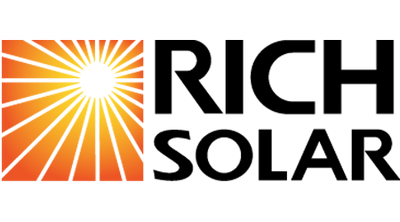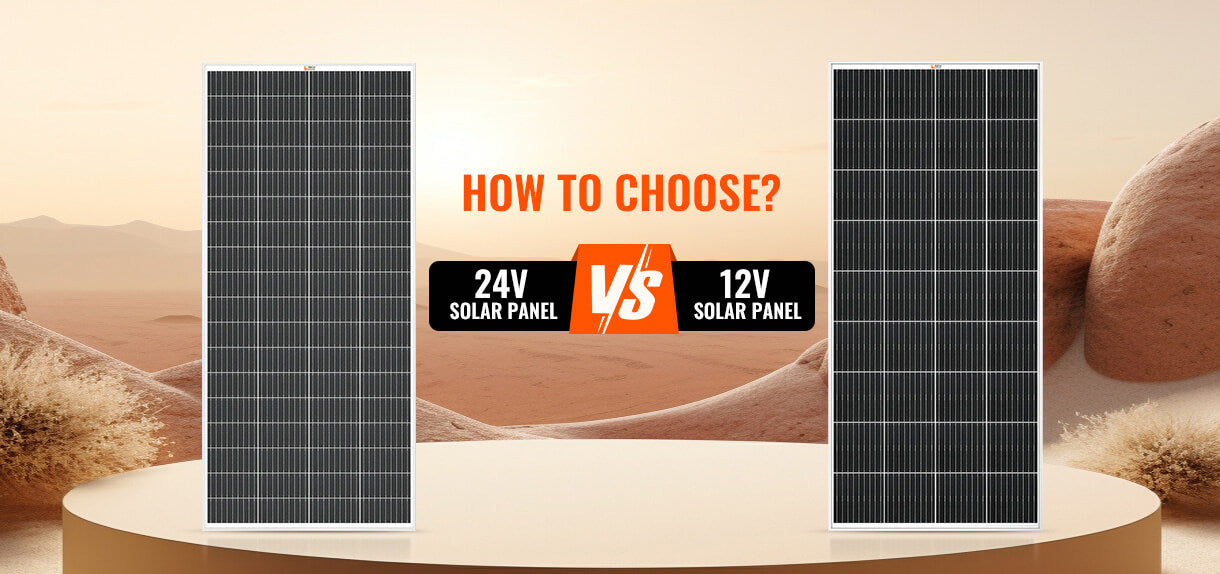The question about whether you can power your life with solar panels should no longer be about if you can, but rather how you can. Whether you use solar for your RV camping trips or are living a completely off-grid lifestyle, solar is able to power everything from your computers to your AC units.
Understanding Solar Panel Voltage
Simply put, voltage is known by the unit of measure (V) that describes “pressure” that pushes out electricity. The higher the voltage, the more electricity is able to flow from the panels to your devices. Not everyone needs the highest amount of voltage, but if you have many appliances, a higher voltage is what you need to properly power everything.
Solar systems are built with a voltage level in mind, and it's usually best to stick with components built with those voltages. For example, a 12V system will be built with a 12V battery and 12V solar panels; the same can be said about a 24V system. It is possible to use 12V panels on a 24V system, and vice versa, however, mixing and matching solar panels is not recommended as there is a power drop-off that occurs.

12V Solar Panels
12V solar panels are a very popular option for solar systems. They are safe, versatile, and powerful enough for many household appliances and mobile applications, such as RVs and vans. A large part of their popularity comes from the fact that they are compact while being able to produce a lot of power.
Although they can’t power an entire house, their ability to produce enough electricity for small appliances, marine vehicles, vans, RVs, batteries, and more makes them an incredibly popular option. That, coupled with their affordability, makes them a cost-effective and powerful option for many who are looking to begin their journey to energy independence.
24V Solar Panels
By contrast, 24V solar panels aren’t as beginner-friendly, but that is only because they are to power bigger systems. As previously mentioned, the higher the voltage of the solar panel, the more energy it can provide to systems. This is especially useful for larger solar systems such as those built for residential homes or large buildings. The counter to this is that they have a higher price upfront, but can power much more than 12V panels.
Advantages of 12V Panels
The advantages of a 12V solar panel typically revolve around its accessibility and ease of use. These advantages are:
Affordability
12V panels are less expensive than their 24V counterparts.
Simple
12V panels are used for a wide variety of small applications such as off-grid systems, RVs, vans, and marine vehicles.
Availability
Due to their popularity in many small-scale applications, 12V solar panels are widely available, making it easier to find, replace, and add to your solar system if need be.

Advantages of 24V Panels
The advantages of a 24V solar panel are focused on the capability of energy production. Solar systems using 24V panels have many benefits, including:
Efficiency
With a higher voltage comes lower and better-controlled electrical currents. This reduces power loss found within the wiring, which is essential for large solar systems that use long cables to connect the panels to the other solar components.
Scalability
When building solar systems for larger components, it’s better to use a 24V panel. On top of being able to deliver more power to the entire system, their higher voltage can handle larger loads which is crucial for energy-intensive products and appliances.
Compatibility
Grid-tied or hybrid systems require higher voltage inputs. As such, a 24V panel is more compatible with solar systems that are connected to the grid.

Although 12V and 24V have their benefits, especially concerning specific applications, a 24V panel can help power your entire home. With that said, it’s always recommended to carefully assess your needs and consider the energy output that your system requires.

